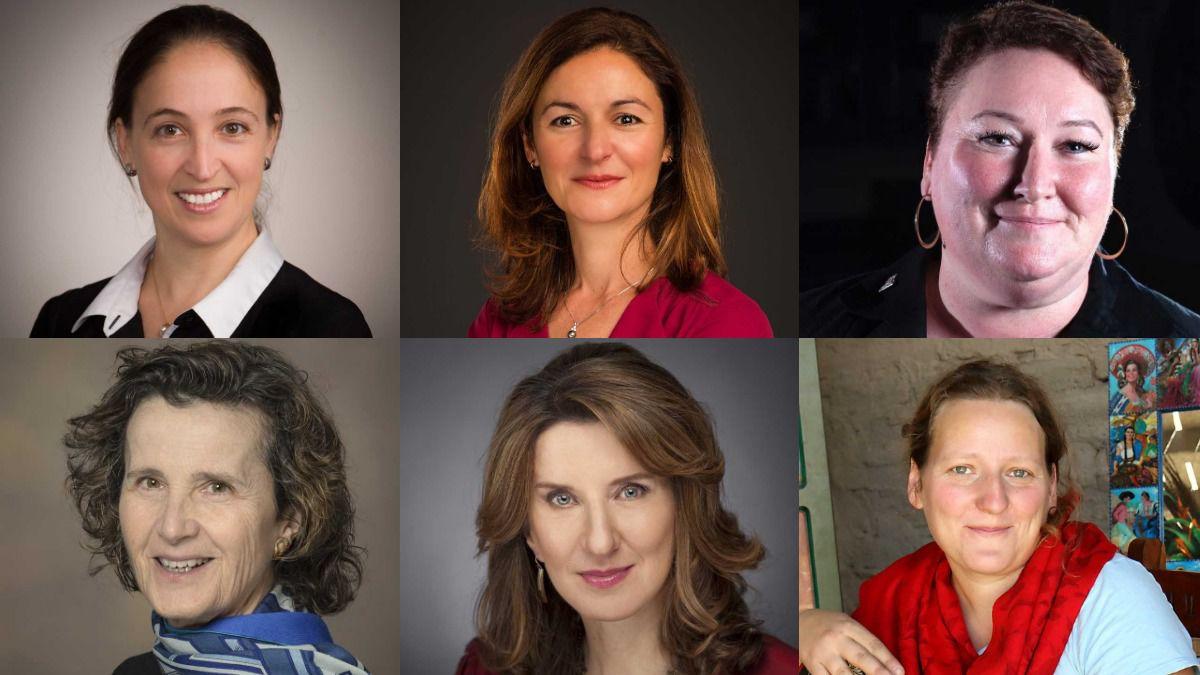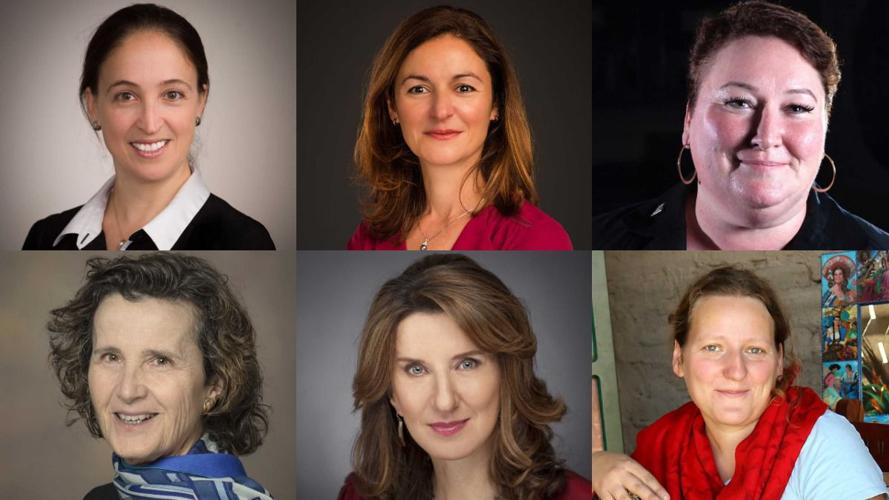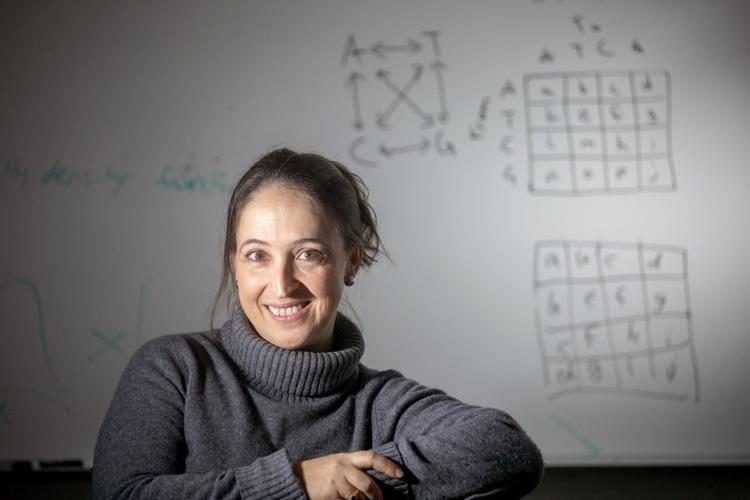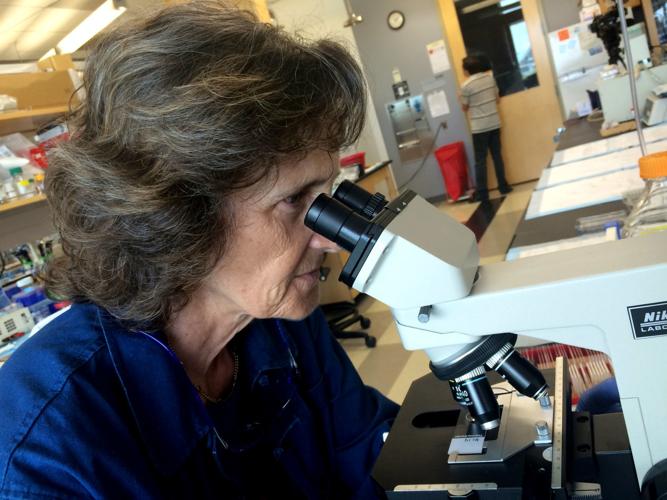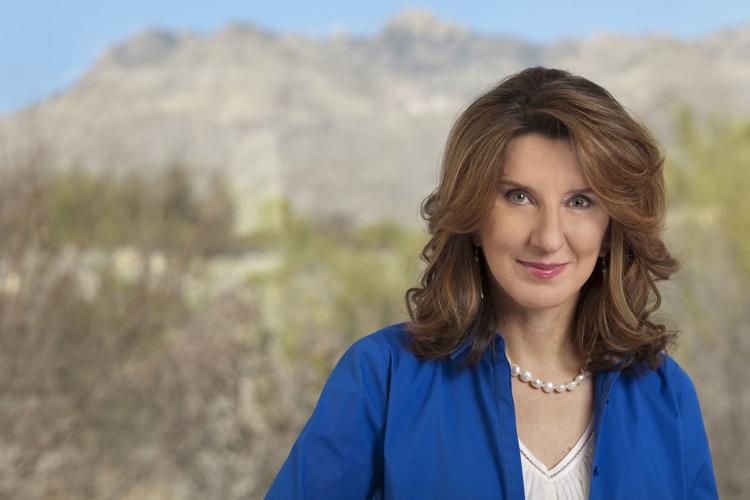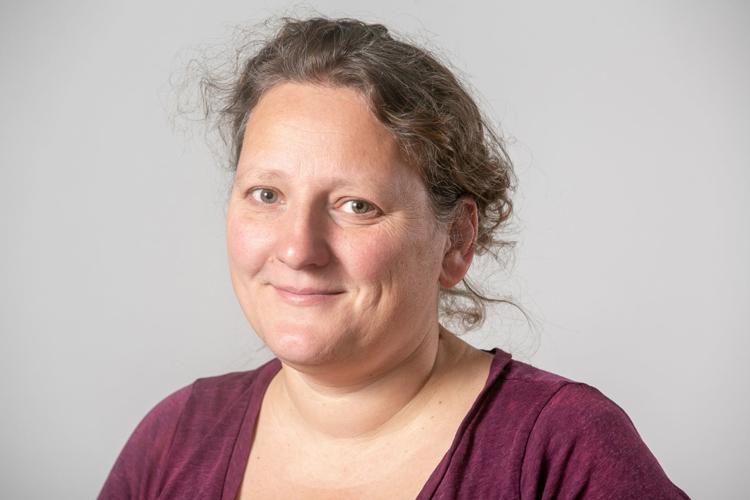Starting tomorrow, you can spend six weeks learning from women scientists at the University of Arizona.
And it won't cost you anything.
The six women speaking at the College of Science's lecture series are sharing their scientific research and discoveries on everything from the connection between mind and body to how astronomers learn about things they can't directly observe.
The public lecture series is in its 14th year and this year will focus on the theme "Searching for Certainty" and how scientists work together to establish and develop scientific truth.
You can attend the free lectures at Centennial Hall, 1020 E. University Blvd., at 7 p.m. on Tuesdays in January and February — Jan. 15, Jan. 22, Jan. 29, Feb. 12, Feb. 19 and Feb. 26.
People are also reading…
In anticipation of the lecture series, we asked several of the participating scientists to give us a peek into the work they do and what they'll be sharing in the coming weeks. Here's what they said.
Joanna Masel

“My frustration is science courses teach a bunch of facts ... rather than critical thinking,” Joanna Masel says.
Professor of ecology and evolutionary biology / presenting "There Is No Certainty" Tuesday, Jan. 15.
Age: 44
What will you be talking about for the Science Lecture Series?
How science gets answers. In particular, the advantages of randomized trials, and their history.
What is the primary focus of your research?
Evolutionary theory. Some specific topics I work on are how robustness of biological systems increases their evolvability, the nature of competition, and the process by which new genes are born from junk DNA.
You're at a party and someone asks you what you do. What do you say?
I'm an evolutionary biologist.
When did you know you wanted to be a scientist? How did that interest grow?
Early on I studied math more than science, but I found myself more interested in answering biological questions than mathematical questions. But I was always drawn to the challenge of understanding the deep structure of things.
Why is your research important to you?
I want to understand how the world is and how it works.
What do you want people to take away from your talk? How does your research impact them?
I want people to accept that the world is inherently uncertain, and that embracing uncertainty as inevitable is the best way forward to reduce uncertainty and make better decisions, eg in medicine, education, or criminal justice. I want people to know that the "gold standard" randomized controlled experiment is not some ancient procedure becoming obsolete in the era of Big Data, but a surprisingly recent invention that has always encountered strong opposition and that has not yet been used to its full potential.
Donata Vercelli

Donata Vercelli says she comes to her UA lab each day “with a sense of anticipation.”
Professor of cellular and molecular medicine / presenting "The Microbes Shaping Our Lives" Tuesday, Feb. 12.
Age: 65
What will you be talking about for the Science Lecture Series?
The microbes that shape our lives.
What is the primary focus of your research?
Asthma and allergic inflammation
You're at a party and someone asks you what you do. What do you say?
I study how our environment (especially microbes) and our genes determine our susceptibility to diseases — asthma and allergy in particular.
When did you know you wanted to be a scientist? How did that interest grow?
I have wanted to be a scientist for as long as I can remember because I am interested in discovering. Being in the biomedical field at a time in which the field is literally exploding and revealing novel kinds of causality (our interactions with microbes being the best example) has only further strengthened my resolve.
Why is your research important to you?
Because I like challenges. Research constantly challenges the mind and the spirit and keeps me out of my comfort zone.
What do you want people to take away from your talk? How does your research impact them?
Microbes have been traditionally seen as foes that need to be eliminated. Now we are realizing that the millions of microbes we harbor are essential for our health and influence virtually all our characteristics: Our immunity and our blood pressure, our weight and our cognition and possibly even our mood. The discovery of the microbial world has just begun but is already revolutionizing biology and medicine.
Katalin Gothard

“Fear has such a powerful survivor role in all species. But rarely do we really have a reason to be fearful,” says Katalin M. Gothard, who seeks to reduce negative responses.
Professor of physiology, neurology and neuroscience / presenting "The Mind-Body Dialogue" Tuesday, Feb. 19.
Age: 59
What will you be talking about for the Science Lecture Series?
I will talk about the way our bodies and our minds are connected. These connections have been unknown, ignored or denied at various times and by various schools of thought. I will show how and why the content of the thoughts can influence the function of our internal organs and how the state of bodies influences the content of our thoughts.
What is the primary focus of your research?
The neural basis (or brain mechanisms) of emotion and social behavior.
You're at a party and someone asks you what you do. What do you say?
I wiretap the emotional center of the brain (with microelectrodes) and listen in on the conversation between brain cells. For example, we found cells that signal eye contact between two individuals. Then I imagine what these signals might look like when these individuals are strangers, or are in love, or they just had a fight. Then I test these ideas experimentally to learn whether I was right or wrong. The best part is that I learn something important even if I was wrong. By decoding these signals I can get an idea of what might be going on in the brain when we experience an emotion or we engage in interactions with others.
When did you know you wanted to be a scientist? How did that interest grow?
When I started medical school I had no doubt that I found my calling, and I had a clear image of what my life would be as a physician. But while a medical student, I met inspiring people who showed me how to ask new questions and encouraged me to pursue them. The more I learned about scientific research, the more I identified with this new, alternative life path, and eventually I made the switch. I never regretted it.
Why is your research important to you?
I have the privilege to feel part of something new and exciting, something that I hope will benefit many one day. To be honest, I also love the idea that I get to play, to solve a new puzzle every time I start a new project. Also, I love my scientific community. I get to meet and interact with with amazing people.
What do you want people to take away from your talk? How does your research impact them?
The mind and the body are two facets of the same entity. Together they achieve what neither can achieve without the other. Our body is the best home our mind will ever have. We should respect, be gentle to and accept our bodies. By taking care of our bodies, we tend to our mind.
Anna Dornhaus

Ron Medvescek / Arizona Daily Star
Anna Dornhaus says she wants her elementary school students to understand that “science is the place to go if you really want certainty.”
Professor of ecology and evolutionary biology / presenting "Can Intelligence Be Measured?" Tuesday, Feb. 26.
Age: 44
What will you be talking about for the Science Lecture Series?
How we study intelligence / problem-solving in animals, and how our brain achieves it.
What is the primary focus of your research?
Distributed systems, social insects.
You're at a party and someone asks you what you do. What do you say?
I study social organization in insects. Specifically, what systems of communication, task allocation/division of labor, consensus building/decision making work well for groups and why? Ants and bees are great examples of how to achieve this in a group. Bees are also highly intelligent as individuals, but as groups they solve problems that individuals could not. How is this achieved? And can we use these new ideas for how to organize groups in our life, for example in distributed computing? That's what I study.
When did you know you wanted to be a scientist? How did that interest grow?
I knew at least in fifth grade ... I always wanted to study animals. It grew when I realized how intricate and interesting social insects are.
Why is your research important to you?
(1) Social insects and complex systems (collective behavior) fascinate me personally. (2) It moves us forward as a civilization (as does all gaining of knowledge) and thus creates a permanent impact (i.e. the new knowledge will be available to mankind forever) — and improving and moving forward our civilization as a whole is the highest goal in my mind. (3) I like puzzles.
What do you want people to take away from your talk? How does your research impact them?
Main point (perhaps even of the entire series): Science often produces counter-intuitive results — yet we know that only rigorous application of the Scientific Method can overcome the strong biases we have — so: We must learn to accept results that we do not understand or like. Second, more specific point: Our brain is a collective of neurons and works in some ways more like a machine learning or like an ant colony than like a centralized logic machine. It evolved to come up with best guesses based on background information and noisy input. Third: It is very hard to guess what someone else is thinking, and we usually guess wrong — this is why we need to be able to let scientific results (controlled experiments) change our mind.
Speakers not featured
You should also check out "Understanding the Unseen Universe" on Jan. 22 by astronomy and physics professor Feryal Özel and "Climate and the Deep Blue Sea" on Jan. 29 by associate professor of geosciences Joellen Russell.
If you go
What: University of Arizona Science Lecture Series
When: 7 p.m. Tuesdays, Jan. 15, Jan. 22, Jan. 29, Feb. 12, Feb. 19, Feb. 26. Get there early to get a seat.
Where: Centennial Hall, 1020 E. University Blvd. on the UA campus.
Cost: Free
More info: To see the full lineup and learn more about each lecture, visit uascience.org/lectureseries.



